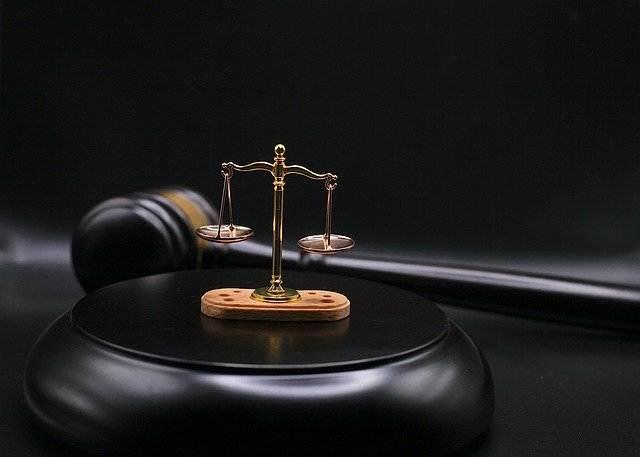In my country, Nigeria, the legal system is based on English law, with traces of Islamic and Customary law.
-. According to what was explained in class, according to the law or laws of your country, indicate two examples of public law and two examples of private law, and explain why you consider that these rights are part of public law and private law.
| Examples of Public Law |
|---|
- Constitution of the Federal Republic of Nigeria 1999: This is the supreme public law in Nigeria; the constitution serves as the framework for the government, fundamental human rights, and also creates the relationship between the government and citizens.
Why it is a Public Law
It clearly reveals the powers and limitations of government institutions and relates the activities of the government to the people.
- Criminal Code Act: This law codifies the criminal laws in Nigeria. It sets out punishments, prosecution of crime, and procedures for investigation and offenses.
Why it is a Public Law
It strengthens the relationship between the government and the citizens, ensuring that citizens abide by societal norms and public order.
| Examples of Private Law |
|---|
- Property Act: This law is concerned with the ownership, use, and transfer of properties, such as land, goods, and other assets.
Why it is a Private Law
It ensures the rights to property of individuals and fosters dispute resolution techniques between private parties.
- Contract Act: This law governs the agreements between individuals or organizations. It also sets out rules for enforcing contracts.
Why it is a Private Law
Its main focus is on resolving disputes between private parties and fostering voluntary agreements and exchanges.
-. You must select two laws from your country, you must place them in one of the branches of law explained in class (or with which of the branches of law it is related or similar), you must also explain why you place that law in that specific branch.
(1). The Constitution of the Federal Republic of Nigeria 1999
Branch of Law: Constitutional Law (Public Law)
This is the supreme law in Nigeria; it defines how government works, fundamental human rights, and the relationship between the government and the people. Constitutional Law focuses on the understanding, application, and enforcement of the constitution. It is a Constitutional Law because it outlines to the people what the governments are capable of and incapable of doing.
(2). The Nigerian Labour Act, 2004
Branch of Law: Labour Law (Private Law)
It deals with working conditions, industrial relations, and employer-employee relationships in Nigeria. The Labour Law addresses the rights and responsibilities of workers and employers, ensuring the resolution of disputes. It is a Labour Law because it focuses on the relationships between employers and employees, ensuring fair treatment and dispute resolution.
-. Of all the branches of law (explained in class or that you know and has not been explained), which one do you find most interesting and why?
I consider Criminal Law to be the most interesting because it emphasizes societal order and justice. The law outlines how to treat criminal cases and the process of proving guilt or innocence; it takes into account the moral and ethical laws involved. It is a perfect law to apply in order to ensure justice.
-. We have all had or experienced moments within one of the branches of law. So you must tell us about your own or someone else's experience but of which you have full knowledge and can adapt or compare it with one of the types of law explained in class.
You must describe this legal situation in detail and explain why you consider it part of that right.
My Uncle, Mr. Joseph, 39 years of age, works as an employee in a manufacturing company in Abuja, Nigeria. One day while at work, he was operating a machine when he got injured during the process. He was rushed to the hospital and admitted. His employer received the information and was eager to provide financial assistance for medical care, but he refused to accept liability for the accident. My Uncle, Mr. Joseph, was convinced that the company was responsible for the accident due to poor machine maintenance and lack of training.
| As a Branch of Law |
|---|
From this scenario, it clearly describes Labour Law, specifically Employment Law, which ensures fair employer-employee relationships.
| Considering it as part of the rights |
|---|
Safety and Health in the Workplace: It is the duty of employers to ensure a safe working environment, equipment, and proper maintenance.
Liability to Employees: Employers should acknowledge liability for any harm incurred during work or work-related activities by an employee in the workplace.
Compensation for Workers: Compensation should be provided to employees for illness or injuries from work activities in the workplace.
| Where Labour Law Applies |
|---|
Mr. Joseph was an employee of the company; the injuries he sustained were acquired in the workplace during work activities, which calls for liability and the need for a safe working environment.
I invite you guys join this contest;
@imohmitch
@sampson01
@us-andrew
Cc,
@anasuleidy



https://x.com/Promisezella/status/1873012665523814709?t=U-HKhP_TDjgfgUb_AlOeCg&s=19
Downvoting a post can decrease pending rewards and make it less visible. Common reasons:
Submit